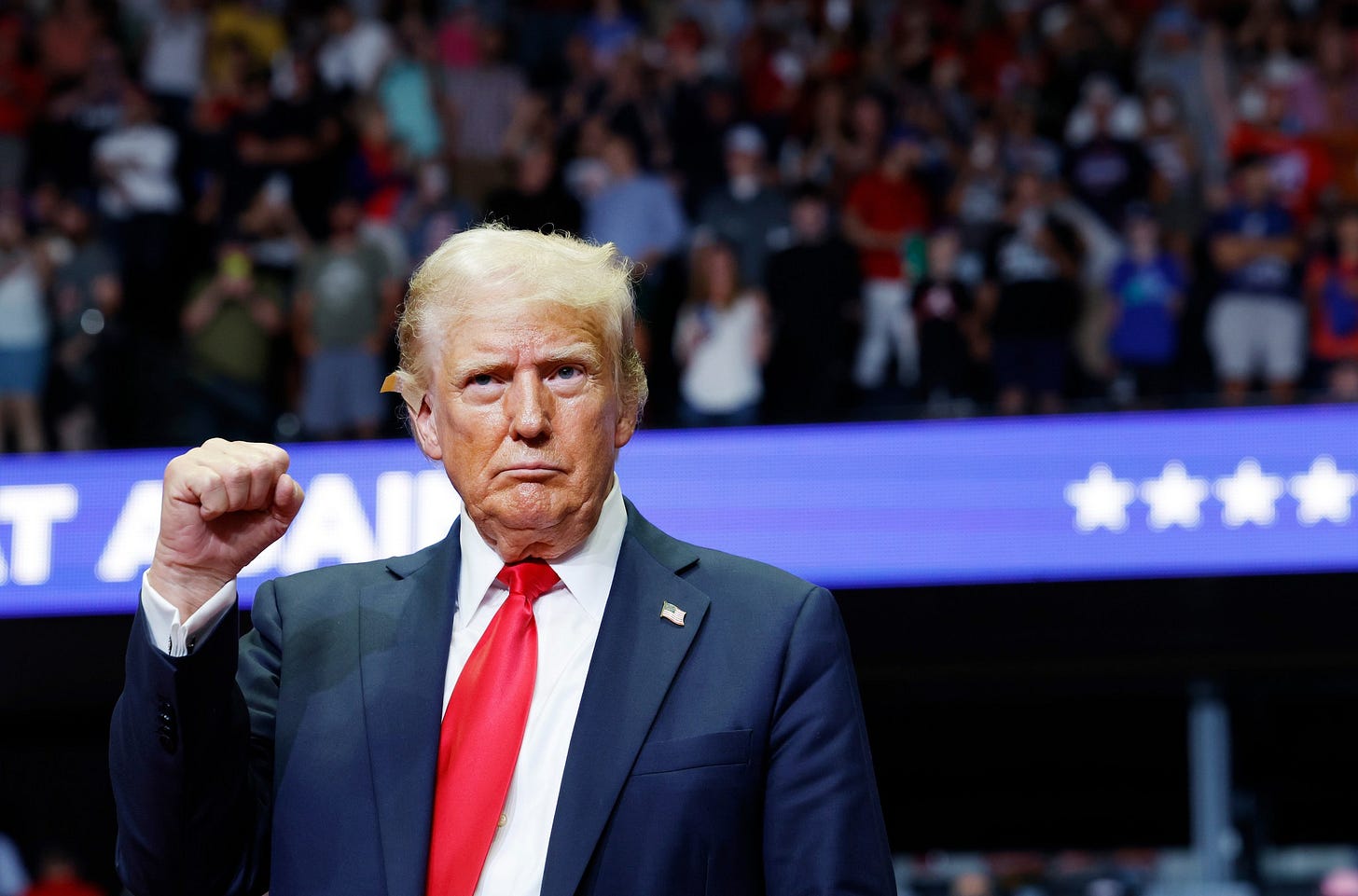No Wars Under Trump?
The mind bending politics of the United States
Recently, there's been an interesting phenomenon in the United States: presidents now get blamed for armed conflicts around the globe during their term in office. The conflict doesn't even have to involve them directly, but many people believe it's their responsibility. On the flip side, if you ask the average American if the U.S. should be involved in the affairs of other countries, they'd likely say no.
How does this make sense?
During an interview with conservative host Tucker Carlson, Russian President Vladimir Putin was asked who "really" runs the United States. It was a loaded question from the conspiratorial Carlson, but Putin answered: "I don’t know. America is a complex country; conservative on one hand, rapidly changing on the other. It’s not easy for us to sort it all out." Putin’s response is most likely a half-truth, but it reminded me of something I knew yet hadn’t deeply considered: American politics is deeply bipolar, and much of it doesn’t make sense—especially if you're a foreigner.
Like Putin, you might say it's because it's "complex." However, I don't believe that’s the case. There's no rhyme or reason behind much of the idiocy in U.S. politics. For example, a big claim by many in the U.S. is that there were no wars under President Trump. You can fact-check this claim in two seconds, yet it’s still repeated all the time. It’s one of Trump’s biggest "achievements" until...
US Armed Forces launch precision strikes on targets associated with Syrian chemical weapons capabilities
US assassinates Iranian General Soleimani
Iran directly attacks US a base and injures 110 US service members in response to the assassination of Soleimani
US wages war against ISIS
US wages war against Al-Shabab in Africa
US arms sales to Ukraine while combat was taking place in the Donbas region
Judging a president like they're some omnipotent being is idiocy. You do what you have to do when situations present themselves.
"The U.S. was supposed to stop Hamas from attacking Israel." "The U.S. was supposed to stop Putin from attacking Ukraine."
But also…
“why is the US involved in other countries affairs?” “why is the US intervening in other countries?” “Every coup/revolution ever happened because of the CIA.”
These two sets of opinions are incompatible but many American’s hold both of these positions simultaneously. Unfortunately, If you distance yourself from the world it means you lose influence over what happens. You can’t have both things, but it’s 2024 in America, and things don’t necessarily have to make sense.
Side note: often, when the U.S. is criticized, if the person making the criticism removes all agency from every other actor and lays blame lies solely at the feet of the U.S. This should always be a red flag—it’s an indicator you might be dealing with a bad faith actor or dis/misinformation.
Check out Ramp Health B4
Bipolar Disorder
A couple of years ago, I was talking to a friend who told me the U.S. doesn't know what it wants to be. It can't decide whether to be a global empire or an isolationist nation. This creates a dilemma for anyone trying to form a partnership with the U.S. you never know what to expect. Take Ukraine, for instance: sometimes the U.S. will back you with arms and cheer you on, but halfway through the conflict, they might decide to stop sending weapons for seven months. If you're an interpreter in the Afghan army, the U.S. might make a deal with your opponent behind your back and suddenly leave without explanation.
Another notable example is the U.S. partnership with the Kurds in Iraq and Syria. The Kurds in Iraq were key allies of the United States during the Gulf War and in the fight against Saddam Hussein's regime. They provided crucial intelligence and ground support, and in return, the U.S. offered them a degree of protection, particularly through the enforcement of no-fly zones that shielded Kurdish areas from Saddam's forces. The Kurds fought alongside U.S. forces against ISIS, doing a lot of the heavy lifting on the ground. But in 2019, the U.S. abruptly decided to pull troops out of northern Syria. This move left the Kurds exposed to the Turkish military, who viewed them as a threat.
With friends like these, who the hell needs enemies?
I wrote this to highlight how confusing and chaotic U.S. politics can be, and how that chaos filters into all aspects of their society, including foreign policy. If you’re entering a partnership with the U.S., especially a military one, make sure you understand that it could be temporary. You might be in for a ride, include that in your risk assessment—for your own sake.






Vietnam war shows this, as the military supporting tap can be turned off without much notice when Henry K brokered a deal with China behind their Southern ally.
How do other developed democracies compare to the us in bipolarity of politics? And would they seem more insane if they were scaled to our level of influence?